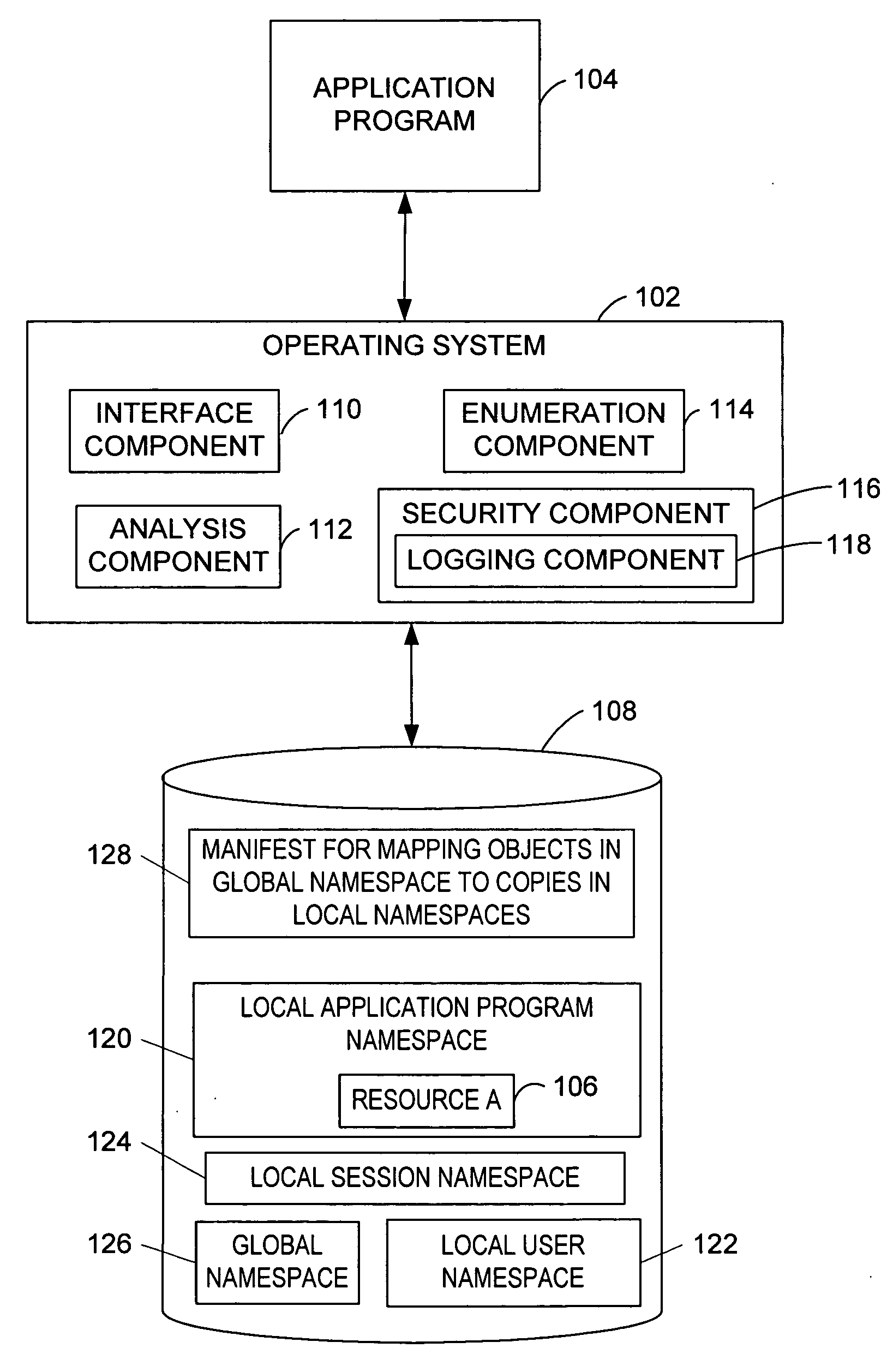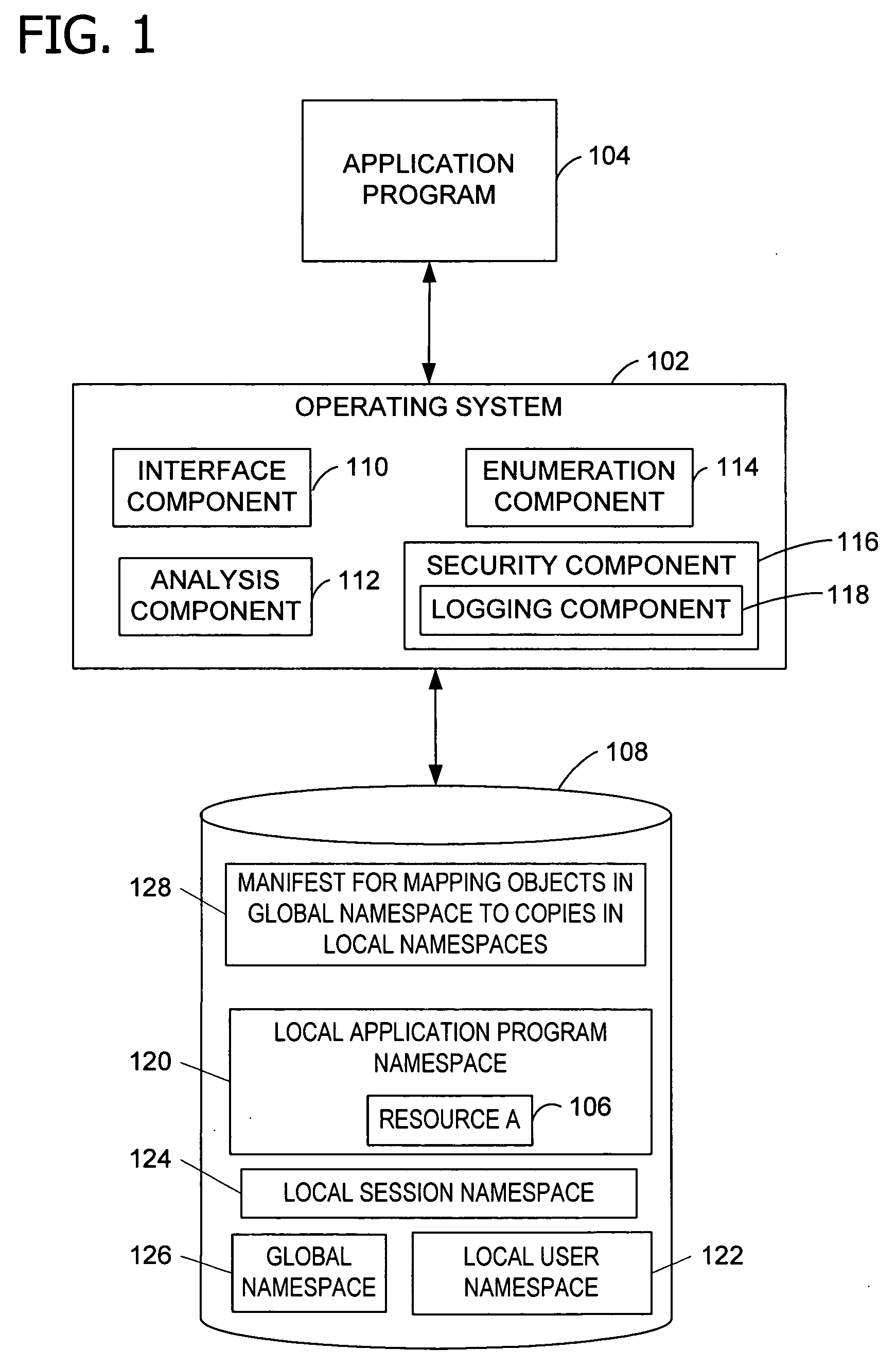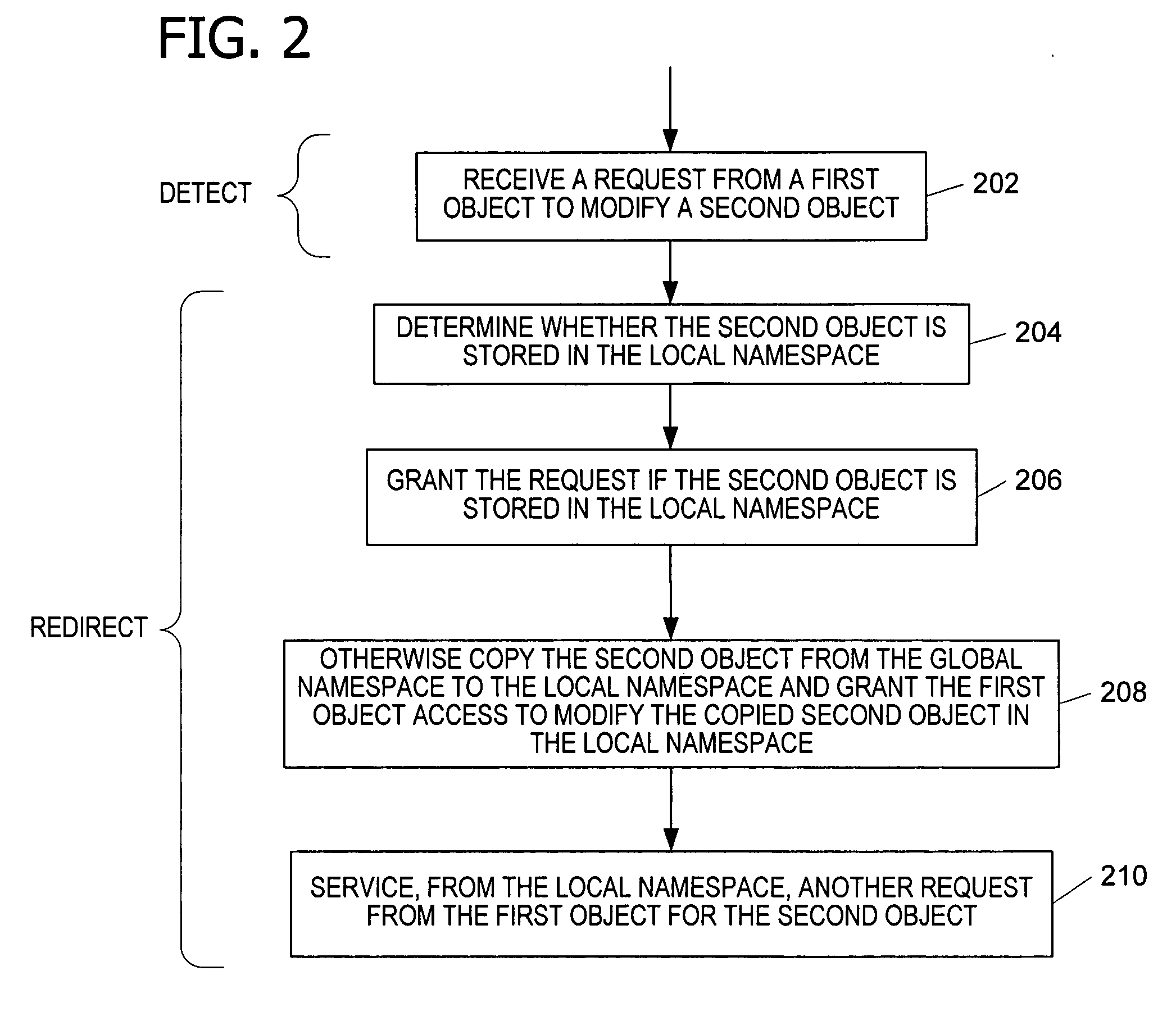Internal object protection from application programs
a technology for application programs and objects, applied in the field of operating systems for computers, can solve problems such as incorrect configuration, namespace conflicts, and currently installed application programs dependent on overwritten files to crash, and achieve the effect of reducing the possibility of name conflicts and unexpected changes
- Summary
- Abstract
- Description
- Claims
- Application Information
AI Technical Summary
Benefits of technology
Problems solved by technology
Method used
Image
Examples
Embodiment Construction
[0024] In one embodiment, the invention provides a method for protecting resources in namespaces. A namespace is a grouping of one or more names that represent individual objects within the group in a shared computing environment. Exemplary namespaces include those associated with object manager, name pipes, mail slots, and network functionality. Object manager namespaces include synchronization objects (e.g., events, mutexes, and semaphores), plug and play, devices, and other named objects. In one embodiment, network namespaces exist for ports and sockets. In particular, functionality of the operating system enables the declaration of protection for files and system settings. The declared protection is persisted and enforced by the operating system or other application program (e.g., a resource provider) through a set of actions the operating system may use during the application lifecycle to manage, track, predict, and mitigate the installation, running, servicing, and removal of ...
PUM
 Login to View More
Login to View More Abstract
Description
Claims
Application Information
 Login to View More
Login to View More - R&D
- Intellectual Property
- Life Sciences
- Materials
- Tech Scout
- Unparalleled Data Quality
- Higher Quality Content
- 60% Fewer Hallucinations
Browse by: Latest US Patents, China's latest patents, Technical Efficacy Thesaurus, Application Domain, Technology Topic, Popular Technical Reports.
© 2025 PatSnap. All rights reserved.Legal|Privacy policy|Modern Slavery Act Transparency Statement|Sitemap|About US| Contact US: help@patsnap.com



